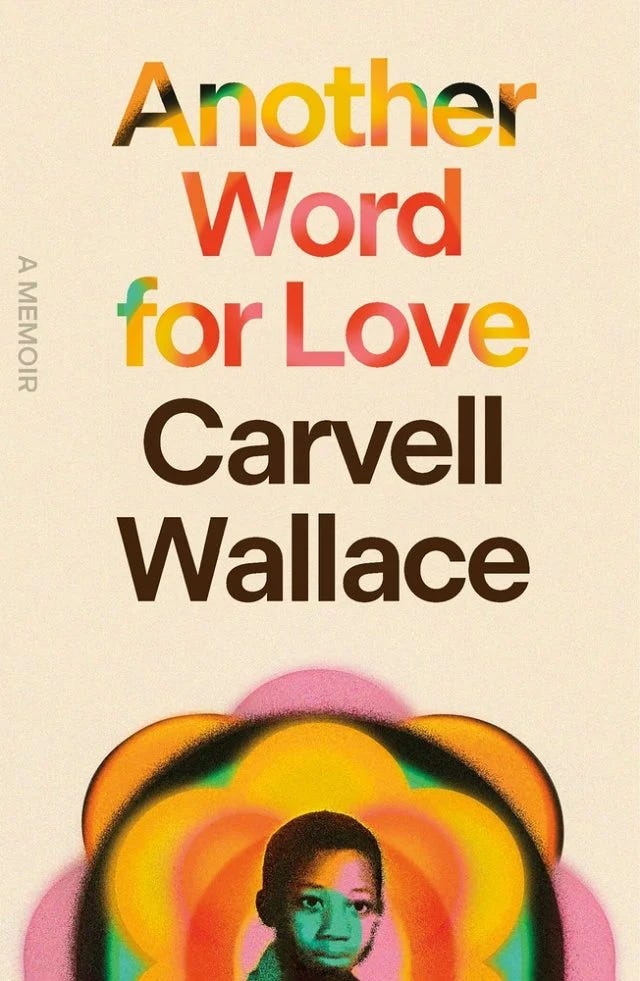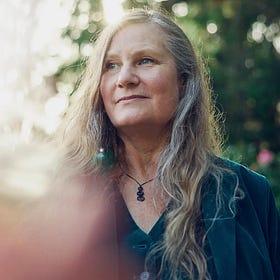Carvell Wallace Gets Into Right Relation
"I was aware as I was writing the book that I was undergoing this transformation. I'm still undergoing it."
Friends!
The snowdrops are emerging in the parks this week, shock-white and flushy purple. Daylight savings time has ended (or begun?) and so it’s still light out at dinnertime. Every February and March I find myself reciting parts of Marie Howe’s poem What the Living Do over and over, like a mantra for late winter:
We want the spring to come and the winter to pass. We want
whoever to call, not call, a letter, a kiss. We want more and more and then more of it.
Wanting more of sweetness and sunshine is “what the living do,” she writes, as is dropping the bag of groceries so it splits, spilling cups of coffee, neglecting to call the plumber when you need a plumber. Craving spring —even though we have genuinely forgotten, in some sense, what spring will really feel, look, smell like— is what we do every winter, and then around this time of year, purple emerges and it’s not all bad, the way we always spill the coffee. We’re getting there.
Today, I’m excited to offer you a conversation with Carvell Wallace whose book Another Word For Love is reminiscent of “What the Living Do” in the sense that it holds together, in beautiful tension, the banal struggles and transcendent victories of being a person trying to muddle through. In this hour, we cover a lot of ground —he reads a little from the book, we talk about turning the skillset he’s honed over years of writing magazine profiles on himself, there’s mention of his collab with Miranda July— but one of the big things we talked about is the alternation between triumph and frustration in writing about (or living) your own liberation.
Another Word for Love explores some of the most difficult moments of Carvell’s young life, moments of real precarity and isolation, and his long fight to free himself from the belief that he would always be hurting and alone. The up-and-down process of writing mirrors the bumpy route to healing, Carvel suggests. Some days things feel like they’re clicking— some days, you feel free. Other days, everything seems to be a mess all over again.
One way to cope with this is to right-size your own sense of the stakes of what you’re doing. Writing isn’t necessarily going to change the world— nor should you necessarily want it to. (We talked about that Darren Aronofsky film Mother!, in which a poet publishes a poem so popular that suddenly the whole world is banging down his door, overrunning his house, endangering his family. It’s a horror film, but Carvell watched it and thought… it might be cool to have written something so popular?) After a period in his youth when he believed that art was everything and would change the world, and a subsequent period of cynicism in which he believed that art accomplished nothing, he has settled into a more tempered middle ground. Writing can do some things, but not everything.
“One of the things that writers do,” he says, “is offer frames.”
When I was a kid I would read The Boxcar Children, and then I’d go outside and be like, I’m a boxcar kid! And it would be a frame by which I could view the world. And so part of being a writer is offering a frame for people to view the world so when they put down your book, they go out and look at the world with the glasses of your book on. That’s a contribution, giving people some way of looking at the world that might be helpful to our spiritual struggles and challenges.
Another Word for Love offers one such frame, a worldview that acknowledges the depths of human suffering and the corresponding brilliance of our possible joy. One of its grounding theses is that people can change — and that we can get “into right relation” while still being in that messy change. "I was aware as I was writing the book that I was still undergoing this transformation. I'm still undergoing it."
It’s a great one. You can listen to the whole conversation here. And you can find Carvell’s Substack at
.Wishing you snowdrops,
Jordan
Our thanks to our partners at the Black Mountain Institute and LiteraryHub for making this episode possible.
Lidia Yuknavitch Waits for Her Wave
"We’re getting a really good look at what the vacuum of idiots looks like."
Live! Garth Greenwell on the Ruthless Pursuit of an Aesthetic Life
"My whole aesthetic practice is predicated on— if something is too much, you do more of it."
Remix: Jericho Brown Mitigates Violence with Tenderness
"I'm always trying to mitigate violence with tenderness. I'm always trying to look at the violence for what it really is, and the violence is there because of fear. All violence rises out of fear."








